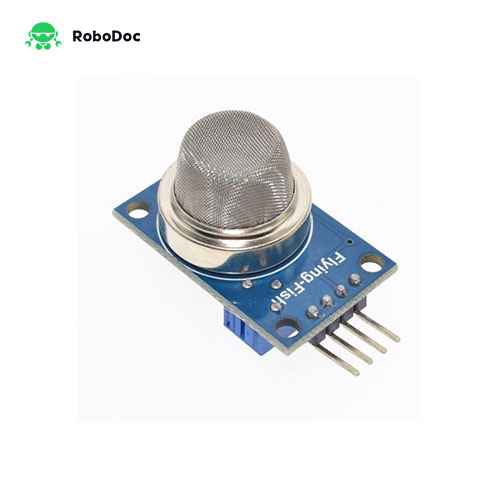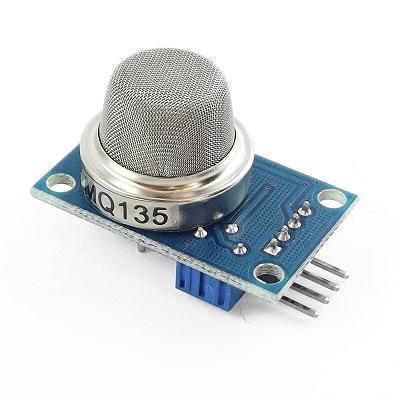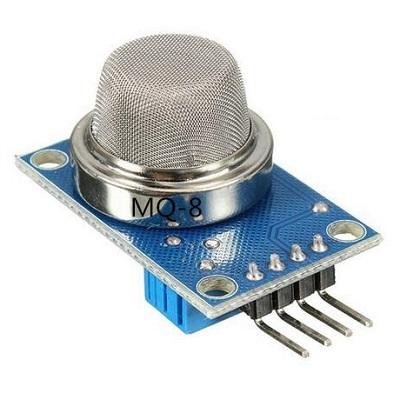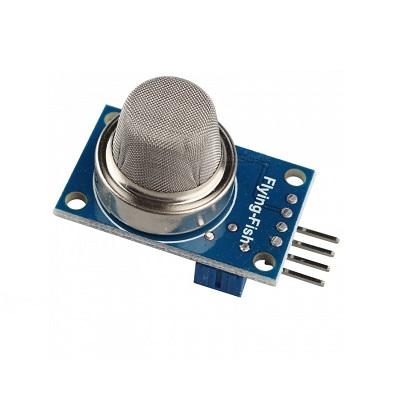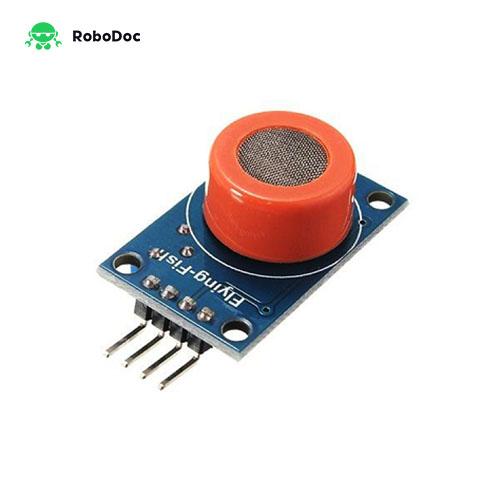This is a simple to use LPG Gas Sensor Module which can sense the presence of combustible gases mainly LPG, isobutane, and propane in the air. The module uses our MQ-6 sensor. It simplifies the interface to the odd pin spacing of the sensor and provides an interface through 4 0.1" header pins. It provides both an analog output corresponding to the concentration of the gases in the air and an easy to use digital output. The onboard potentiometer can be used to set the maximum gas concentration beyond which the digital output gets triggered. Just power the module with 5V set the threshold and you may get the output! An onboard LED signals the presence of any gas. The digital output can be easily interfaced to microcontrollers and other circuits. The analog output can be hooked up to an ADC of a microcontroller to get a wide range of sensor reading.
Where to use MQ-6 Gas sensor?
The MQ-6 Gas sensor can detect or measure gases like LPG and butane. The MQ-6 sensor module comes with a Digital Pin which makes this sensor to operate even without a microcontroller and that comes in handy when you are only trying to detect one particular gas. When it comes to measuring the gas in ppm the analog pin has to be used, the analog pin also TTL driven and works on 5V and hence can be used with most common microcontrollers.
So if you are looking for a sensor to detect or measure gasses like LPG, or methane with or without a microcontroller then this sensor might be the right choice for you.
How to use MQ-6 Sensors to Detect gas?
Using an MQ sensor it detects a gas is very easy. You can either use the digital pin or the analog pin to accomplish this. Simply power the module with 5V and you should notice the power LED on the module to glow and when no gas it detected the output LED will remain turned off meaning the digital output pin will be 0V. Remember that these sensors have to be kept on for pre-heating time (mentioned in features above) before you can actually work with it. Now, introduce the sensor to the gas you want to detect and you should see the output LED to go high along with the digital pin, if not use the potentiometer until the output gets high. Now every time your sensor gets introduced to this gas at this particular concentration the digital pin will go high (5V) else will remain low (0V).
You can also use the analog pin to achieve the same thing. Read the analog values (0-5V) using a microcontroller, this value will be directly proportional to the concentration of the gas to which the sensor detects. You can experiment with this values and check how the sensor reacts to different concentration of gas and develop your program accordingly.

